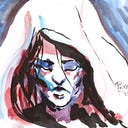Member-only story
The Inquisition Genocide in Europe

TELE MÜNCHEN GROUP — RAI FICTION — GIACOMO BATTIATO — THE NAME OF THE ROSE — 2019
This series is a remake in a way, and yet it is not because some elements are changed in space, size, and dramatic importance. This series is slightly changing the vision of history at the end of the 13th century and the beginning of the 14th century, dated as 1327. After the fall of the Roman Empire, the Germanic invasions, and the introduction of feudalism and the religious reform in the 9th century under the main authority of Charlemagne, Europe redistributed itself into four zones: the British Isles (including Celtic Ireland), and the three section of Charlemagne’s empire among his male grandchildren: Lothair I received Francia Media (the Middle Frankish kingdom). Louis II received Francia Orientalis (the East Frankish kingdom), the largest component of the Holy Roman Empire. Charles II received Francia Occidentalis (the West Frankish kingdom).
Charlemagne introduced under the double authority of his crown and the church what was to become feudalism. The land was unified in its ownership and shared between the nobility and the church at the local and regional levels. The land was worked and tilled by the peasants who were mostly serfs. They were attached to the land and could not travel or move without some permit. But the Benedictines (or Black friars) were known as the engineers of feudalism because they controlled most of the libraries inherited from the Roman Empire and as such they could unify the legal basis of this land ownership and the status of the population in three orders: the nobility whose role was to keep peace and order, and protect the various territories; the clergy both secular or monastic who kept the spiritual and ritual welfare of society; the rest of society divided between the serfs working the land and the villains doing other tasks like all the crafts necessary for this society to expand (commerce and various services).

But Charlemagne’s religious reform introduced a complete restructuring of the religious life of society. Sundays had to be strictly religious for everyone, nearly…
